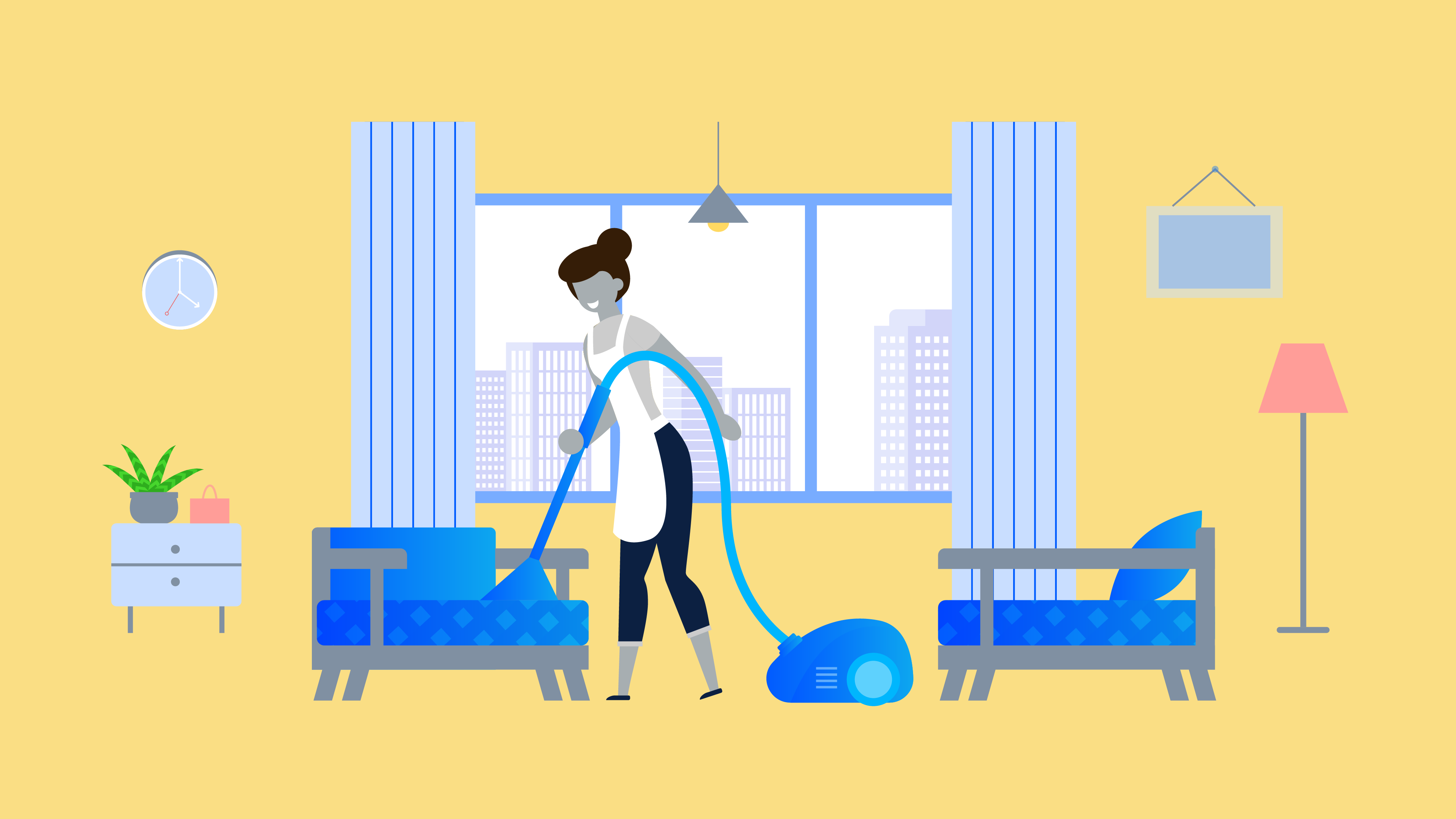How to Start a Cleaning Business in 8 Simple Steps
Ready to start your cleaning business? Here’s what you need to know on starting and running a profitable home or commercial cleaning company.

It may feel tough to get going, but starting and running a cleaning business can be a very rewarding endeavor.
Cleaning businesses usually have low startup costs, don't require extensive certifications or education, and have a fairly high demand for their services. They also make for an excellent mobile business idea as having a physical storefront is not required to operate.
If you’re ready to start your own cleaning business, keep reading for eight essential steps you should follow for a successful launch. You can also drop your email below for tips, resources, and insider advice delivered straight to your inbox!
1. Research Your Industry and Area
The first thing you’ll want to do is some in-depth research of the industry and demand for cleaning services in your area. Starting with a simple “cleaning services near me” search on Google will give you an idea of who your competitors are, the services they offer, and their average rates.
You’ll also want to look into the types of products, tools, and equipment you’ll need and the right vendors to supply them. If you know someone in the industry, consider reaching out for advice or answers to specific questions you have. Small business podcasts are also a great resource to tap into for more tips and tricks.
2. Establish Your Services and Prices

Not all cleaning services are the same. If your research shows a fair amount of competition for home cleaning services, consider providing a more niche service like post-construction cleaning, office cleaning, or senior home cleaning. True crime fan? There’s even a market for crime scene cleaners!
Here are the general categories for cleaning services:
- Residential
- Commercial
- Specialty
Next, make a list of the types of services you’d like to offer like deep carpet cleaning, tile cleaning, dishwashing, window cleaning, janitorial services, etc. Use this list to help you determine costs, equipment, scope of work, and rates.
The national average range for house cleaning services is between $40 to $65 per hour/per cleaner or $150 to $250 for a three-bedroom home. However, these costs will vary depending on the size of the home or office you’re cleaning, your area, and the types of services you’re providing.
If you’re working with a tight budget, we recommend offering basic cleaning services as you gain new clients, business, and positive reviews. Once your business is profitable and has built a good reputation through reviews or word of mouth, expanding your services will make for a great marketing strategy to retain current customers.
3. Prepare a Budget
Once you have an idea of the services you're offering and the products, permits, business equipment, insurance, and marketing collateral you need, establish a projected startup budget.
Consider how you’ll finance your company at the start as well as the future—even a year into being in business. Although startup and overhead costs are relatively low compared to other businesses—like a construction company or an auto repair shop—you want to be able to stay afloat until you have enough clients to break even or make a profit.
For financing options, consider whether you'll be paying out-of-pocket, taking out a credit card, applying for a loan, or bringing on a business partner to help cover the costs.
4. Name and Register Your Business

Whether you have a name in mind or are still brainstorming, it’s highly recommended to check if a business name is available. You don’t want to choose a name that’s too similar to another business as it may cause confusion with customers and can land you in legal trouble. Once you find an available name you like, consider a trademark if you foresee competition for that name.
Most importantly, you want to obtain the right state licenses, permits, and register your business appropriately. Most small businesses start as a sole proprietorship, but you may want to consider an LLC if you’re worried about being personally responsible for business debts and liabilities.
Cleaning businesses also fall into the categories below and may require different permits and licenses depending on your state:
- Consumer: Private home cleaners
- Commercial: Cleaners with corporate clients
- 1099 Contractor: Contract cleaning work
If you’ll be hiring staff, don’t forget to apply for an Employer Identification Number and obtain appropriate liability insurance.
5. Draft a Logistical Plan

Draft a flexible logistical plan to help you start running your business smoothly and efficiently. Just be sure to leave room for changes and improvements as you grow.
This can include standard procedures for the services you provide to ensure quality, a transportation plan, a booking and payment policy, contract templates, etc. You also want to think about your customer journey—simplifying the way they find, contact, scheduling software for business, and contactless payment can encourage them to choose you over your competitors.
6. Choose the Right Technology
Nowadays, technology is a requirement for the survival of almost any business. The small business apps can help your cleaning business by syncing online bookings to your calendar, generating one-click invoices, and even gaining customer reviews.
With that in mind, be sure to test different digital tools and software you can implement to cut down on the busy work and give you more time to focus on providing excellent services for your clients.
7. Find Your Target Market

In the beginning, it may be hard to find clients. To make it easier, your research should also include defining your target market and identifying places where you can find them. This can include listing your business in online directories, creating a website, making sure you appear on search results, attending certain events, or even using sites like Thumbtack to find gigs.
8. Create a Marketing Plan
Lastly, create a marketing plan that includes strategies to both gain and retain clients. Invest in digital and local advertising, print marketing collateral and business cards, work with local businesses, brand your car or company vehicle, and keep up with social media.
Pro-Tip: Encourage your customers to promote your business by providing a discount or promotion when they share your business on their social media. Ask them to share before and after photos and use a unique hashtag to track and repurpose that content on your own channels.
If you’re ready to fully automate your business, try GoSite for free today and see how an all-in-one platform for managing bookings, client communications, and payments can help you run your business efficiently and effectively.
%20(1)%20(1).png?width=340&name=Group%2012%20(2)%20(1)%20(1).png)



